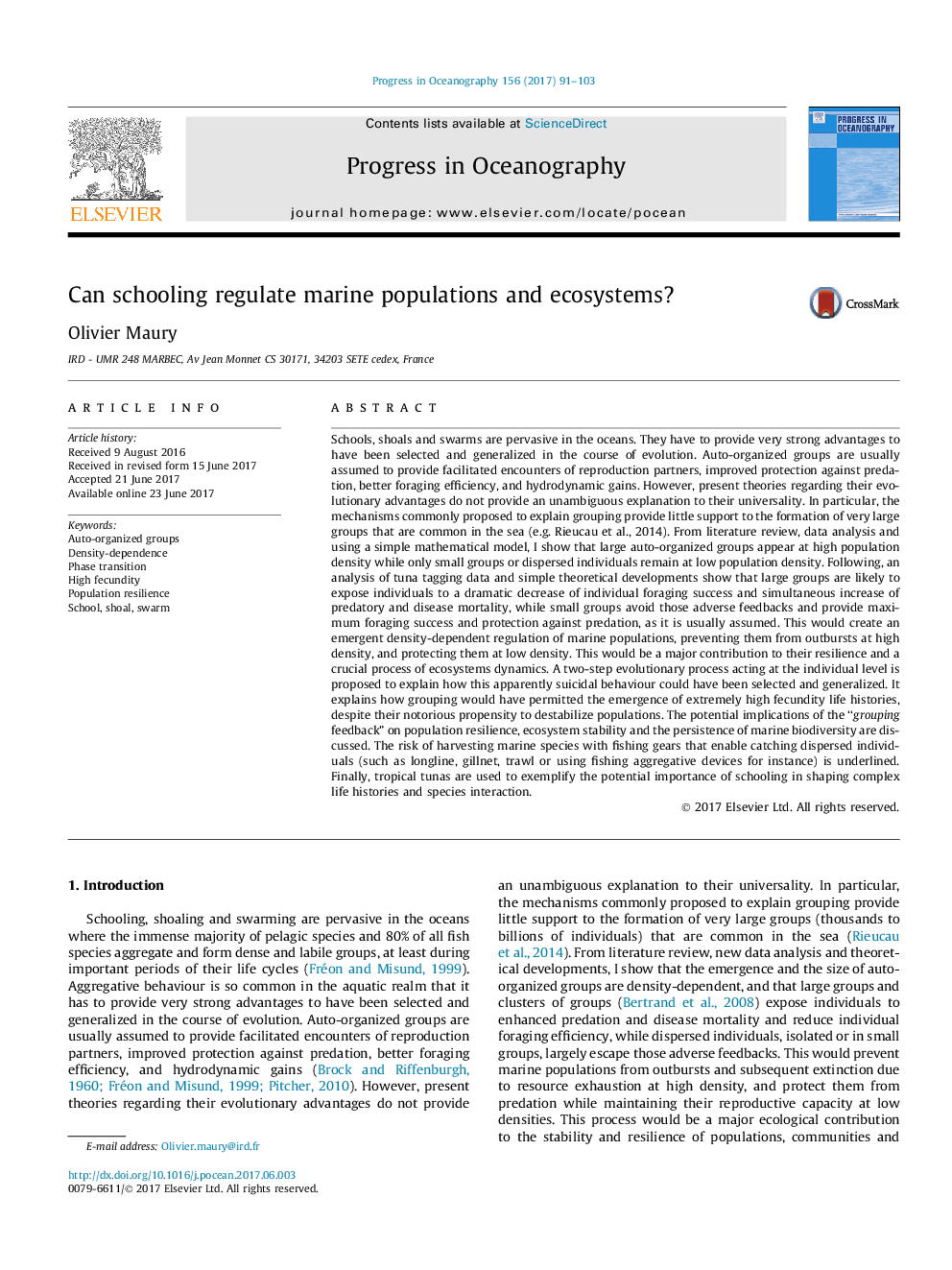| کد مقاله | کد نشریه | سال انتشار | مقاله انگلیسی | نسخه تمام متن |
|---|---|---|---|---|
| 5766477 | 1627902 | 2017 | 13 صفحه PDF | دانلود رایگان |
- Large schools, shoals or swarms are shown to appear at high population density.
- They lead to a decrease of foraging success and an increase of predatory mortality.
- At low population, small groups provide maximum foraging success and low predation.
- This would lead to an emergent regulation of marine populations and ecosystems.
- An evolutionary process is proposed, linking schooling to high fecundity.
Schools, shoals and swarms are pervasive in the oceans. They have to provide very strong advantages to have been selected and generalized in the course of evolution. Auto-organized groups are usually assumed to provide facilitated encounters of reproduction partners, improved protection against predation, better foraging efficiency, and hydrodynamic gains. However, present theories regarding their evolutionary advantages do not provide an unambiguous explanation to their universality. In particular, the mechanisms commonly proposed to explain grouping provide little support to the formation of very large groups that are common in the sea (e.g. Rieucau et al., 2014). From literature review, data analysis and using a simple mathematical model, I show that large auto-organized groups appear at high population density while only small groups or dispersed individuals remain at low population density. Following, an analysis of tuna tagging data and simple theoretical developments show that large groups are likely to expose individuals to a dramatic decrease of individual foraging success and simultaneous increase of predatory and disease mortality, while small groups avoid those adverse feedbacks and provide maximum foraging success and protection against predation, as it is usually assumed. This would create an emergent density-dependent regulation of marine populations, preventing them from outbursts at high density, and protecting them at low density. This would be a major contribution to their resilience and a crucial process of ecosystems dynamics. A two-step evolutionary process acting at the individual level is proposed to explain how this apparently suicidal behaviour could have been selected and generalized. It explains how grouping would have permitted the emergence of extremely high fecundity life histories, despite their notorious propensity to destabilize populations. The potential implications of the “grouping feedback” on population resilience, ecosystem stability and the persistence of marine biodiversity are discussed. The risk of harvesting marine species with fishing gears that enable catching dispersed individuals (such as longline, gillnet, trawl or using fishing aggregative devices for instance) is underlined. Finally, tropical tunas are used to exemplify the potential importance of schooling in shaping complex life histories and species interaction.
Journal: Progress in Oceanography - Volume 156, August 2017, Pages 91-103
